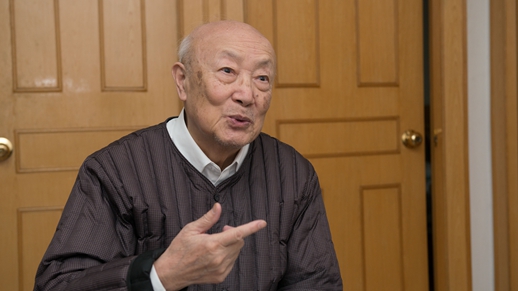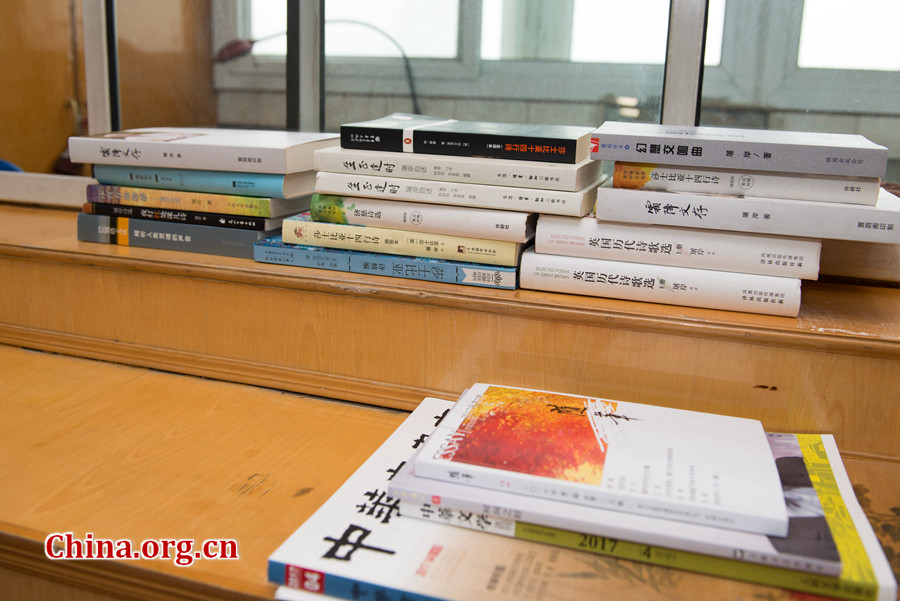Tu An: Portrait of a poet and translator
- By Li Xiao, Chen Boyuan
 0 Comment(s)
0 Comment(s) Print
Print E-mail China.org.cn, May 31, 2017
E-mail China.org.cn, May 31, 2017
| Some of Tu An's published works and translations are seen in his apartment. [Photo by Chen Boyuan / China.org.cn ] |
Speaking of the poems by renowned poets that he translated, Tu can't seem to stop. He has worked with Zhang Yan, his youngest daughter, in translating and publishing I know that He exists: Poems of [Emily] Dickinson. He comments that "Whitman and Dickinson are the twin stars in American poetry. Dickinson kept a low profile, with some 1,800 poems written, but only a few published during her lifetime, and even those few were published anonymously. However, in our day, one might even say she outshines Whitman."
In 1950, Tu's translation of The Sonnet Collection of William Shakespeare was published, which was the first complete Chinese translation of this part of the Shakespearean output. As to Shakespeare, Tu thinks that Ben Jonson, a contemporary poet, said it all: "He [Shakespeare] was not of an age, but for all time!" Added Tu: "Shakespeare was big on writing for the theater; however, his sonnets are equal to some of his best plays, treasures of human literature."
Tu's favorite foreign poet is John Keats, who died of TB at the tender age of 26. Tu himself suffered from this as a young man. Back then, there was no efficient medication in China which meant the lung disease was a death sentence. The primary schoolteacher from whom he benefited much, his friend in college and his neighbor all died in this way. Naturally, he thought that he would not live long, either. Therefore, reading Keats he couldn't help but look at the poet as a dear friend of the same destiny and felt that "in the unseen world, our encounter was God's will."
In a letter to his brother, Keats introduced the "negative capability" in poetry. Tu translated it into 客观感受力 (Translator's note: It literally means "the capability to feel the essence of objects", which loosely differs from the original term). Tu explains his translation saying, "poems are all about objects. The capability to feel the objects means for the poet to let go of the thinking patterns he has developed, and embrace the object that he is trying to evoke. I do have a strong faith in the idea." Among his many translation works, his personal favorite is Selected Poems of John Keats. "Keats dedicated his entire life to poetry," Tu says with affections.






Go to Forum >>0 Comment(s)